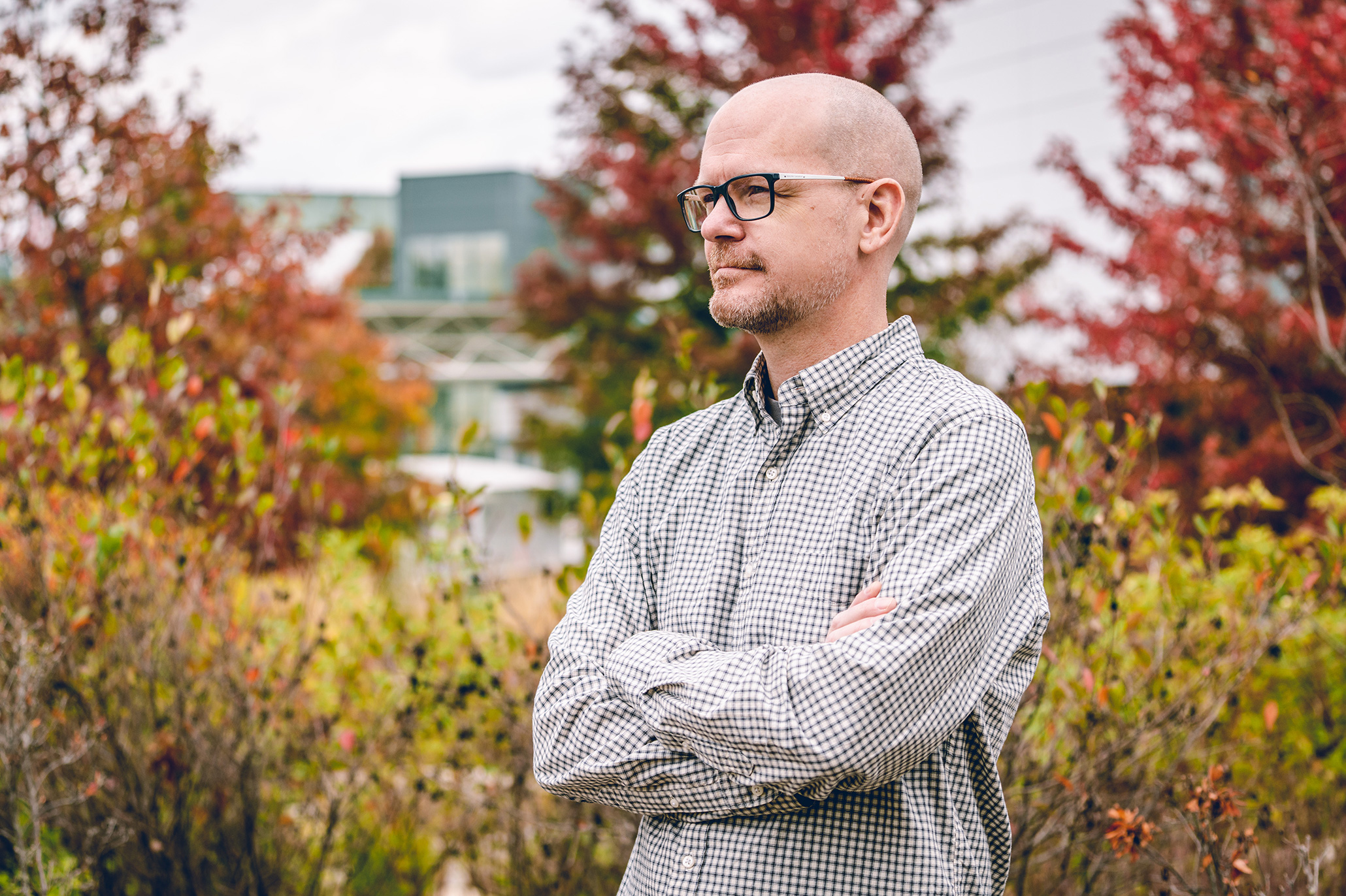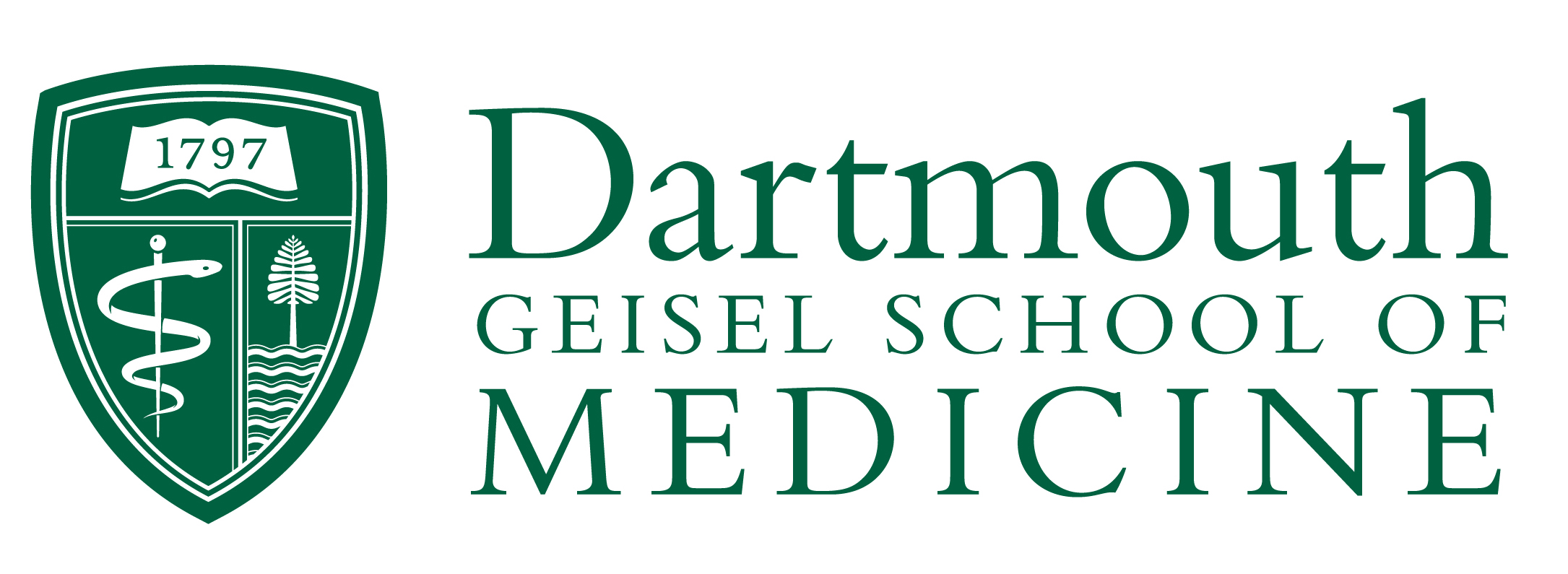
When it comes to factors that can influence a career path, none have been as important as those involving family for Scott Gerber, PhD.
“Growing up, I spent a lot of time in and around hospitals with my mom, who is a nurse—that really piqued my curiosity in medicine,” explains Gerber, a professor of molecular and systems biology and of biochemistry and cell biology at the Geisel School of Medicine at Dartmouth.
But along the way, he fell in love with basic science, majoring in chemistry as an undergrad before going on to earn a PhD in analytical chemistry at the University of Washington. While there, Gerber began focusing on proteomics (the study of proteins and their function) and became proficient at a technology known as mass spectrometry—a technique that allows for the large-scale identification and analysis of molecules (such as proteins) and how they affect cellular processes.
About midway through graduate school, his grandfather died of non-small cell lung cancer. “Unfortunately, it wasn’t identified until it had already metastasized to the brain and he died very quickly. It was through that difficult experience that I became committed to trying to eradicate lung cancer in the world,” says Gerber, who completed a postdoctoral fellowship at Harvard Medical School before coming to Dartmouth in 2006.
Today, the Gerber Laboratory is a world leader in applying spectrometry-based proteomics approaches to better understand the function of proteins in cells and what goes wrong during cell division in cancer. “In particular, we’re interested in how proteins talk to one another through a process called cell signaling,” he explains.
This is important, says Gerber, because in cancer, mutations or other aberrations of cells cause these communications to either be amplified or silenced—that’s what ultimately drives cells to proliferate uncontrollably or metastasize to distant sites in the body. “So, our goal is to identify new pathways, in which cellular communication is disrupted, as potential entry points for developing therapies to treat lung cancer.”
Gerber and his colleagues are making significant contributions to the field of mass spectrometry-based proteomics in two main areas or sub-fields. One is in quantitative proteomics, which refers to the capacity to quantitatively compare differences in proteomes—the entire compliment of proteins in cells—across large numbers of samples.
“Another has been in the sub-field of signaling or phosphoproteomics, which allows us to do rapid, large-scale analyses of signals that are placed on proteins, called phosphate groups, inside of cells,” he says. “My laboratory has really revolutionized the way that researchers, both here at Dartmouth and around the globe, analyze signaling pathways through the process of phosphoproteomics.”
In recognition of these contributions and his outstanding record as a teacher, Gerber was named the inaugural Kenneth E. and Carol L. Weg Distinguished Professor at Dartmouth in 2019. He also serves as director of the Cancer Biology and Therapeutics Research Program at Dartmouth and Dartmouth-Hitchcock’s Norris Cotton Cancer Center, and as associate director of Geisel’s Quantitative Biomedical Sciences Graduate Program.
“I don’t come to leadership roles naturally,” he confides. “But they’ve been opportunities for me to grow professionally and to take science into a new dimension. They’ve also been very rewarding experiences.”
When asked what he finds most gratifying about his work, Gerber says, “For me, the accomplishment of doing research well is really only paralleled by the sense of satisfaction I have in interacting with and training the next generation of scientists.”
While he enjoys doing didactic teaching in the classroom, what he loves most is being a mentor to graduate students in his research laboratory. “It’s really kind of a wonderful thing—though not always easy,” Gerber says, laughing. “Nothing in your career could ever really prepare you for it, short of just doing it.
“In fact, I’ll be honest. When I first started here 14 years ago, grad students terrified me. I thought, ‘Gosh, these are people who are trusting me with their careers and who are expecting me to show them the ropes and provide all of the answers to their questions.’”
What he’s found works best is to “support them, but get out of their way,” he says. “They drive their own education largely, which upon reflection, I also did while appreciating the supportive environment I had as a graduate student.”
Gerber felt a special sense of accomplishment as an educator and mentor of graduate students last summer when the second student to graduate from his laboratory (Devin Schweppe, PhD), started his own laboratory at Gerber’s alma mater as an assistant professor of genome sciences at the University of Washington.
“That’s really kind of, in a nutshell, why I think many of us do what we do,” he says.




